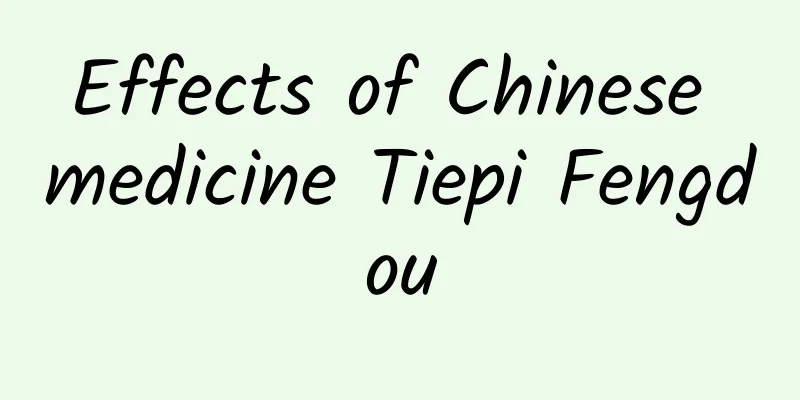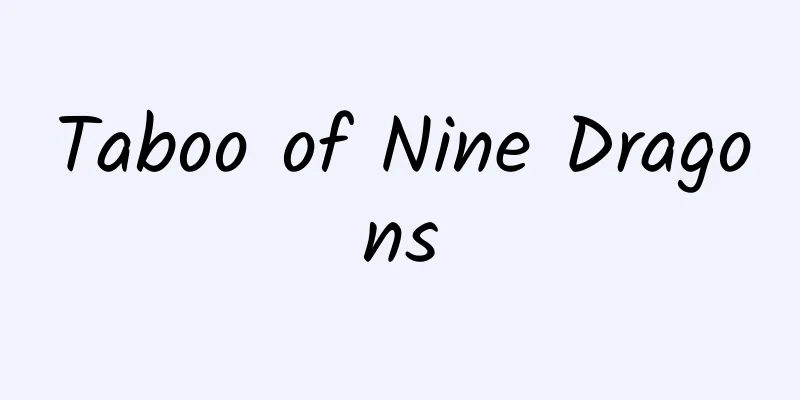Effects of Chinese medicine Tiepi Fengdou

|
A Chinese medicine book says: "Dendrobium officinale, also known as Wanzhangxu, is the dried product of authentic fresh Dendrobium officinale." Therefore, Dendrobium officinale is called Dendrobium officinale, or Dendrobium for short, by most people. Its ingredients include dendrobium polysaccharides, dendrobium alkaloids and dendrobium amine. Generally speaking, Dendrobium has the effects of replenishing the five internal organs, anti-aging, lowering "three highs", and inhibiting tumors. Health products. Basic effects Nourishes the spleen and stomach Dendrobium candidum is a medicine that benefits the stomach and promotes the production of body fluids. It is recorded in "Shennong Bencao Jing" and "Bencao Zaixin", and is called "gastrointestinal medicine". It is a commonly used medicine for treating epigastric pain and upper abdominal distension. Protect liver and promote bile secretion Dendrobium has a good choleretic effect. Doctors of all dynasties have believed that "Dendrobium candidum" has the effect of nourishing liver yin and is an important medicine for treating various liver and gallbladder diseases. It can be used to treat hepatitis, cholecystitis, gallstones and other liver and gallbladder diseases. Strengthens bones and muscles Dendrobium can nourish yin fluid, and yin fluid can lubricate joints, thereby achieving the effects of strengthening tendons and bones, facilitating joints, and enhancing resistance to rheumatism. Lowers blood sugar Dendrobium can nourish yin, clear away heat and moisten dryness. It has been a special medicine for the treatment of diabetes since ancient times. Dendrobium can not only enhance insulin activity, but also significantly lower blood sugar levels and restore blood sugar to normal. Tumor suppression Dendrobium candidiasis has a killing effect on certain cells of human lung cancer, ovarian cancer and promyelocytic leukemia, and has strong anti-tumor activity. Bright eyes Dendrobium candied fruit not only has a delaying effect on the prevention and treatment of cataracts, a common eye disease among the elderly, but can also maintain the transparency of the lens. It has been regarded as an excellent product for eye care by doctors of all generations. Nourishes the skin Dendrobium contains a large amount of mucus, which has a moisturizing and nourishing effect on human skin. Longevity Dendrobium contains a variety of trace elements, which are closely related to human health and longevity. The anti-aging effect of Dendrobium on the human body is more extensive and comprehensive than that of general drugs. Dendrobium officinale is a precious Chinese medicinal material and a second-level protected plant in China. Data shows that: "Dendrobium candidum is known as the "life-saving magic grass" and the "giant panda" in the medicine world. It can be said to be a national treasure-level medicinal material. In some coastal cities such as Shanghai and Zhejiang in my country, especially in Hong Kong, Macao, Taiwan and Southeast Asia, it has been recognized as a high-end Chinese medicinal material. |
<<: What diseases can Baihe Lingzhi grass treat?
>>: Introduction to Artemisia capillaris red date tea
Recommend
Strong cold front is coming! Will this year be a warm winter or a cold winter? The latest analysis from the National Climate Center →
According to the Central Meteorological Observato...
The efficacy and function of horseradish
Horseradish is something that many people are ver...
The role of proanthocyanidins
In daily life, we always see some girls who love ...
How to handle wolfberry paste?
Wolfberry is a good medicine for nourishing and m...
The difference between Panax notoginseng and Panax notoginseng
The difference between Panax notoginseng and Pana...
Have you ever seen a 3.6-pound "big orange" fur ball?
The tiger in the picture below is called Ty, let’...
Is licorice hot or cold?
Licorice is a medicinal herb that is often used i...
What are the effects and functions of Perilla frutescens
Angelica dahurica bark is a plant originating fro...
This "leaf" is full of treasures, reducing cholesterol and preventing various diseases
Everyone knows that aloe vera can remove blemishe...
Traveling to Jupiter to find water
Opening words How do astronauts live in space? Wh...
What is the Northeast Cold Vortex?
"It started snowing again in April", &q...
In the year of the Nobel Prize for Bell's inequality, remembering Bell's life
The 2022 Nobel Prize in Physics was awarded to th...
The effect of Cordyceps and wolfberry wine
People usually think of learning how to recuperat...
The efficacy and function of wintersweet flowers
Wintersweet is a familiar medicinal material with...









